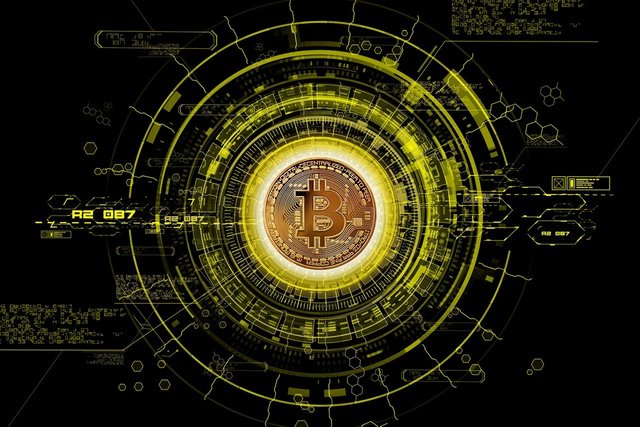1. Grin developer David Burkett has published a progress report for the month of December, updating the community about his work towards implementing MW on Litecoin. Burkett reported that after months of planning, “development of the MimbleWimble extension block has officially started!”. Burkett revealed that he was primarily focused on restructuring the core logic that will be shared between Grin++ and LTC. This involves all of the logging, serialization, crypto, error handling, and common data structures. Read Full on litecointalk
2. The next Bitcoin technological breakthrough will come through the Schnorr + Taproot soft fork. Specifically, the proposal promises to provide Bitcoin with greater scalability for multi-signature applications or complex smart contracts that may have several different ways to spend the cryptocurrency. The Schnorr algorithm provides a simple way of structuring crypto signatures. Therefore, it can significantly enhance the efficiency of validating Bitcoin transactions. Read Full on Bitcoinist.com
3. As of 31 December, the total Unspent Transaction Outputs, or UTXO for BTC had hit a whopping 64.49 million, a 30% increase since the start of 2019. Each bitcoin transaction has the potential to generate UTXO, or “change”, which is then redistributed to a change address. UTXOs can be further classified into UTXOs in profit and loss. UTXOs growth indicate that the price of BTC was lower at the time of creation. Read Full on Bitcoinist.com
4. China has formally implemented a law governing cryptographic password management as part of its pre-release plans for its central bank digital currency (CBDC). The latest regulations have become legally binding following their unveiling in October last year. The Standing Committee of the 13th National People's Congress in China passed the crypto law on Oct. 26. It divides passwords at large into three distinct categories, passwords, common passwords, and commercial passwords and aims to facilitate China’s transition to blockchain technology. Read Full on Cointelegraph
5. Burger King restaurants in Venezuela now accept the payments in cryptocurrency. Burger King will trial the system at its premises in the Sambil Caracas shopping mall with plans to roll out the system to all of the country’s forty restaurants in 2020. The initiative is the result of a partnership with Cryptobuyer, the company that makes the point of sale systems that Burger King will use to accept Bitcoin, Dash, Litecoin, Ethereum, BNB, and Tether. Cryptobuyer CEO Jorge Farias said that Venezuela is the perfect ground to deploy real-world cryptocurrency solutions. Read Full on Decrypt
6. Burger King restaurants in Venezuela now accept the payments in cryptocurrency. Burger King will trial the system at its premises in the Sambil Caracas shopping mall with plans to roll out the system to all of the country’s forty restaurants in 2020. The initiative is the result of a partnership with Cryptobuyer, the company that makes the point of sale systems that Burger King will use to accept Bitcoin, Dash, Litecoin, Ethereum, BNB, and Tether. Cryptobuyer CEO Jorge Farias said that Venezuela is the perfect ground to deploy real-world cryptocurrency solutions. Read Full on Decrypt
7. After suspending MetaMask's Android app last week, Google has now restored it. Last week, Google suspended MetaMask’s app, citing its policy of banning cryptocurrency mining apps from its Android store. MetaMask is a browser extension that allows users to run Ethereum decentralized applications (dapps). MetaMask had also filed an appeal, which Google rejected at the time. As the app has now been restored, MetaMask said the experience has made it “more resilient” and “stronger.” MetaMask has an estimated 264,000 monthly active users. Read Full on The Block
8. The Ethereum mainnet has just undergone the Muir Glacier hard fork, less than a month after its Istanbul update on Dec. 8. The Muir Glacier update was activated at Block number 9,200,000 on Jan. 2, 2020, with only one improvement proposal, EIP 2384. The proposal aims to delay the difficulty bomb, a built-in algorithm of the Ethereum blockchain that could drastically increase the difficulty in mining a new block if left unaccounted for. The update is designed to delay the difficulty bomb for another 4,000,000 blocks, or approximately 611 days. Read Full on The Block
9. Transactions made through the privacy coin Monero are untraceable, found Europol’s European Cybercrime Centre. Jerek Jakubcek, a strategic analyst at Europol, spoke of a suspect who conducted Monero transactions through the privacy browser, Tor. Tor scrambles IP addresses by rerouting traffic through its network, making it difficult to track web history. Jakubcek told Whatever happened on the Bitcoin blockchain was visible. But with Monero blockchain, that was the point where the investigation has ended. Read Full on Decrypt
10. The number of Bitcoin ATMs has risen by around 50% in 2019 to hit a total of 6386 according to CoinATMRadar. December 2019 was a momentous month for many reasons, With record number of 338 new Bitcoin-ATM installations it has smashed the previous all-time high of 294 set in August of this year. CryptoMaticAtm, Crypto ATM solution provider is pretty sure that more Bitcoin ATMs coming soon to fulfill user demand and have launched exciting new year offers for the customer who wish to install Crypto Atm in there vicinity. Read Full on CryptoMaticATM
